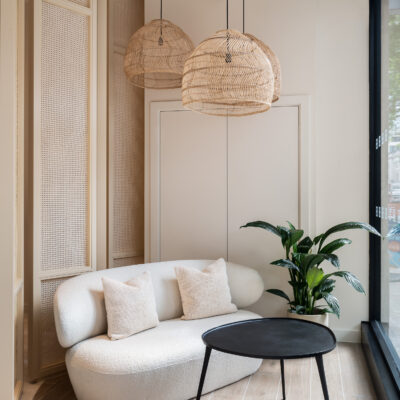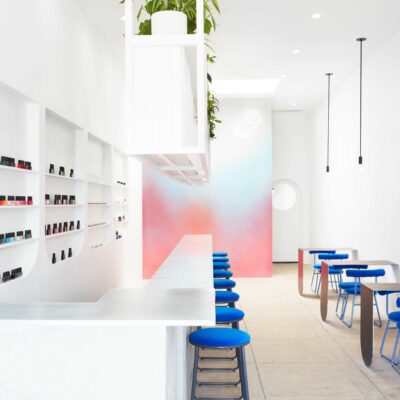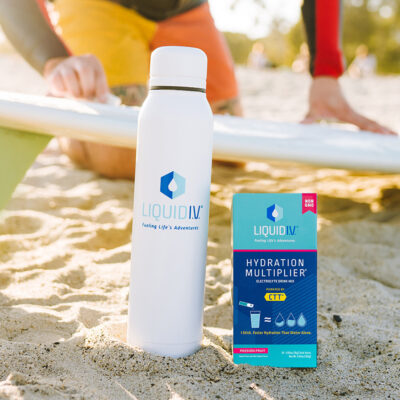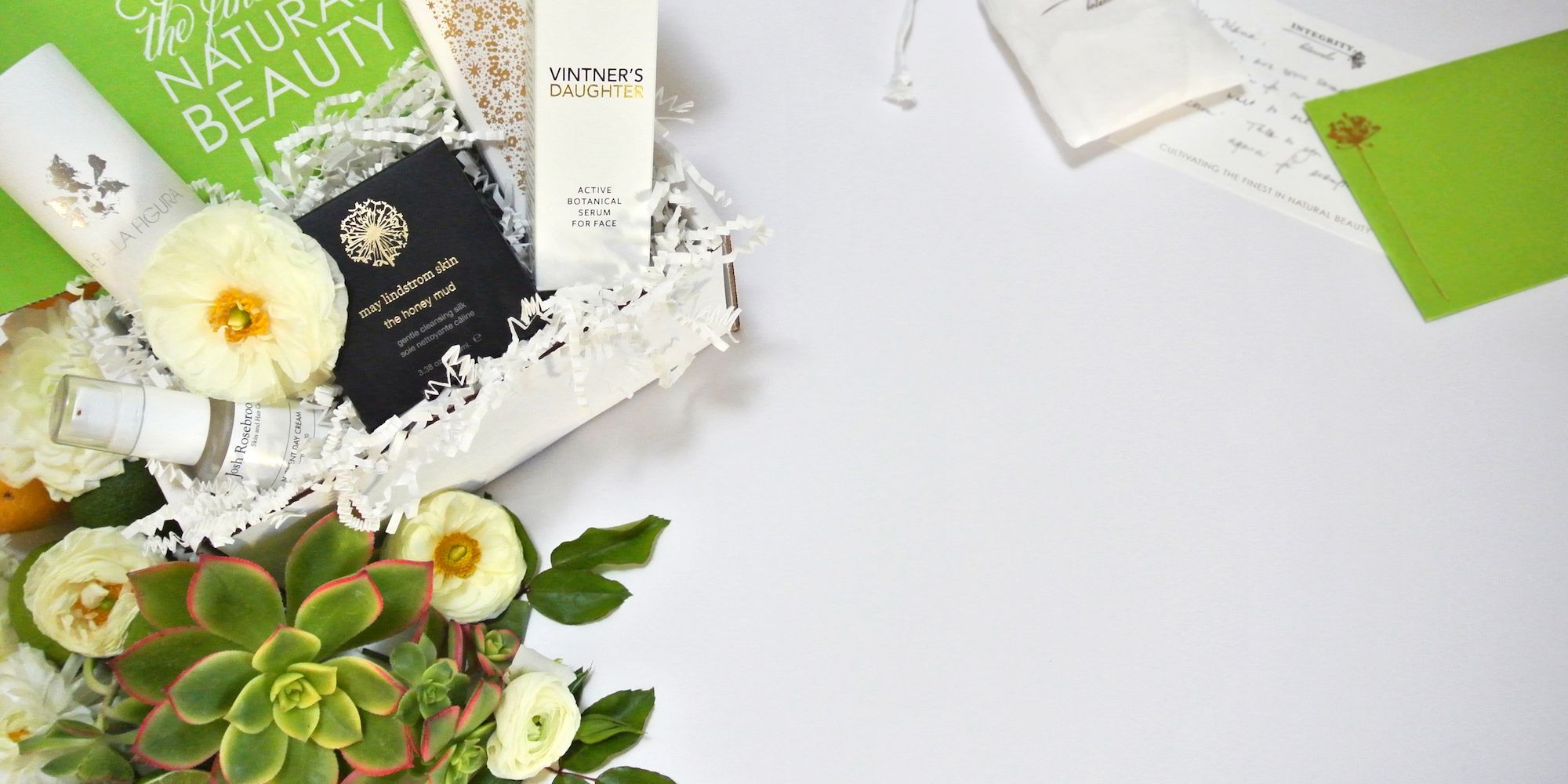
Integrity Botanicals Cultivates A Luxe Clean Beauty Shopping Experience That Clicks With Consumers Online
Terri and Marc Hall, the husband-and-wife team behind eco-luxe e-tailer Integrity Botanicals, launched their website in 2011 as a side endeavor while pursuing respective freelance fashion design and wealth management careers. The seminal natural beauty book “No More Dirty Looks,” a gift from Terri Hall’s sister, shook their beauty beliefs to the core. “That was really the catalyst. I was reading about all these marketing claims that companies [were] making. I started reading the back of the labels,” recounts Hall. Since then, Integrity Botanicals has accumulated an all-star roster of clean beauty brands, including cult favorites May Lindstrom, Vintner’s Daughter and Josh Rosebrook Skin and Hair Care, as well as rising stars Antonym Cosmetics, Plume and Lone. Beauty Independent caught up with the New Jersey-based Halls to discuss how online clean beauty shopping has evolved, the benefits of running a robust sampling program from day one and why they love Amazon.
Why did you launch Integrity Botanicals?
Marc: Around the same time [Terri was reading “No More Dirty Looks”], we were also reading “The Four Hour Workweek” by Tim Ferriss. Terri was really getting interested in natural beauty and, at that time, the product offerings that were out in the market were really limited. A lot of them were these granola brands, and there were very few places that you could buy natural beauty products beyond Whole Foods or The Vitamin Shoppe. There [were] only one or two online retailers at the time. Our early experiences were that we were going out buying a lot of products, and very few met our standards. We were going out and spending a lot of money on products, and a lot of products we ended up throwing out because they weren’t working for us, especially in categories like deodorant.
We started brainstorming, and thought to ourselves, “Wouldn’t it be nice if there was an online natural beauty retailer?” A lot of people didn’t have access to natural beauty in local stores at the time. Whole Foods was still growing at that point and wasn’t available in a lot of areas. If we had an online store to offer the best in green beauty and test everything as opposed to us just buying products and putting them out there, that way we would weed out the products that were bad or ineffective. When we started the business, we were both working full-time. It wasn’t something we anticipated growing into what it is.
Terri: At that time, there was only two or three other online retailers, so there was not a lot of competition. Now, several years later, there are so many popping up here and there, but I think we hit it at the right time.
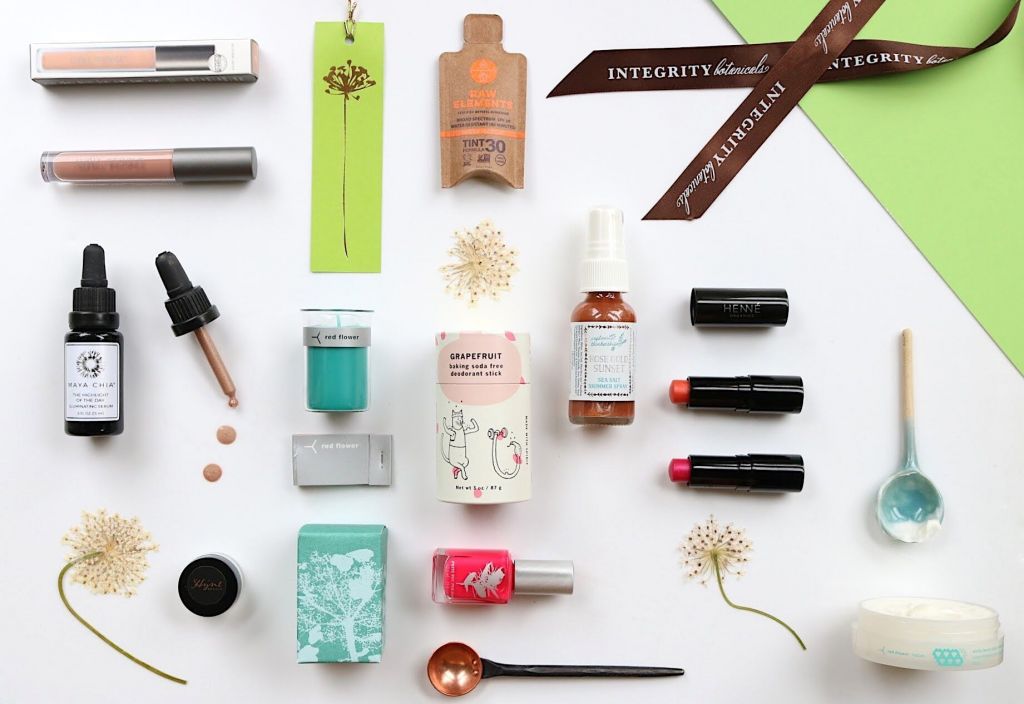
Who is the Integrity Botanicals’ target customer?
Terri: It’s 90% female, about 10% male. About 42% is in the age range of 25 to 34. The second biggest group would be at 23%, which is ages 35 to 44.
Geographically, where are your customers?
Marc: Major cities. California is a very big market for us, New York City is a very big market for us. Texas is a big market for us, but that might be slightly skewed because we were formerly based out of Houston, followed by Massachusetts and maybe Florida.
How many product lines did you launch with?
Terri: A handful, maybe 10, 15. It was very hard to get brands in the beginning. We didn’t even have a website established.
Marc: We were complete neophytes going into the retail space. To start the business, we [wanted] to have a wide array of products in different price points. We quickly learned that higher-end brands don’t want to sit next to [lower-priced brands]. Someone who’s selling a $200 face oil doesn’t want their product sitting next to a $20 face oil that someone can buy at Whole Foods.
Terri: We learned that some of the brands that we carried were mainstream, something you could get at Whole Foods, and were more easily accessible. We thought that was great because people would recognize the brand, but we quickly learned that that wasn’t a good strategy because people weren’t looking to us to purchase those brands. They were doing food shopping and picking those up along the way. We decided to restructure and carry these more special lines, more luxury brands that are harder to find.
Marc: In 2013, when we did the rebranding of the website, we made that shift to focusing on eco-luxe brands and niche brands that were very difficult to find at that time. During that period between 2009 to 2013, we were constantly buying new product lines and evaluating products. During the same period is when a lot of the brands that we carry launched, so there was a lot of brands popping up.
How do you discover brands?
Terri: We have 65 brands. Right now, we’re really looking for products that are different, brands that customers are asking us for, categories that maybe we haven’t completely covered.
Marc: We’re looking to identify gaps in our product lineup. We work with a lot of green beauty bloggers, and we talk a lot of other people in the industry and always ask people what they have tried recently. We find that brand founders seem to be the most up on what [are] the new brands that are coming out, so we always ask them what they’ve seen that they like. That’s often a good starting point for us. Also, we do customer surveys, and we try to gauge interest from our customers. A lot of times we’ll have customers either call on the phone or email us, and they’ll ask us, “Are you going to be carrying this brand? We’ve been hearing a lot of buzz about this product.” That generally puts the brand on our radar.
How do you evaluate for Integrity Botanicals a brand once it’s on your radar?
Terri: Ingredients are number one. We’re probably one of the strictest online natural beauty retailers, if not the strictest. We don’t carry products that contain dimethicone, artificial colorings or pigments except for nail color, or phenoxyethanol. There’s packaging as well. Because we are online only, the first impression people are getting of the products is that image. Packaging is part of the decision-making process, but it’s not a deal breaker.
Marc: The other thing I’m always looking for is brands that are pushing the envelope a little bit. Everyone does a face oil because it’s the easiest product to make it. You don’t need to put anything in to stabilize it. It’ll stay shelf stable. So, we’re looking for brands that are doing more interesting things like gel serums or cream moisturizers, which are a lot more difficult if they have water in it.
That’s the next frontier and green beauty. As there’s more money coming in to the green beauty space, it’s going to start attracting people who are more sophisticated product formulators and chemists. They’re going to make products that push the envelope and differentiate themselves from everything else that’s out there.
If a brand is sold on Amazon, does that go into your consideration process?
Marc: I love Amazon. We owe our business to Amazon because were it not for Amazon and them constantly exploring new product offerings, people would not be as receptive to shopping online for beauty products today as they are. That said, 90% of brands that we carry do not permit their products to be sold on Amazon or Ebay as part of their selling agreement, which is good for us because everything that Amazon sells on their site, they have bots that search the internet and look for the lowest price.
Overall, Amazon doesn’t have a major impact on our business at this point. The one thing is their shipping, because they are so fast. It obviously puts pressure on us because our customers expect their shipments to arrive in one, two business days. We try our best to get orders out that day or the next day. We have to get it out within two business days and we are known for fast shipping, so I think we are competitive in that way, but that is definitely one of our biggest concerns, we have to keep up and make sure that we’re shipping as fast as [Amazon] can.
How do you like brands to approach you?
Terri: We don’t like when brands mail us product without having a conversation first. It puts us on the spot because we didn’t engage in a conversation about trying this product, and then they decide to call us…it’s an uncomfortable situation. We generally like to test out product on our own, [do] our own research. We like when brands email us versus calling up. That way we can digest everything, look at it, see if it’s a good fit and then see if it’s worth engaging in a conversation to learn more.
Marc: We’re fine if they want to reach out by phone, just so they know who the appropriate contacts are. But beyond that, sending an email, making sure that they include some detailed information about the brand, what makes the brand different.
Terri: [Include information] on your understanding [of] products that we do carry and what our business is about.
Marc: One of the big mistakes that we see brands make is they don’t always fully understand what our business is. Some brands, you can tell that they send out mass emails. They’ll leave the wrong company name on it. “We would love the products to be sold on The Detox Market.” We get a kick out of that.
Sending out a giant box of products without reaching out to us, it’s kind of a turnoff. We feel a little frustrated by it, because, one, we feel bad that they’re spending a lot of money sending a box of products, And a lot of times the brand doesn’t, doesn’t know, for example, we don’t carry products with phenoxyethanol and they’ll send us a box of products and all of the products have phenoxyethanol in them.
Terri: We feel bad because [the products are] not up for for consideration, they spent a lot of money and didn’t do their research and we don’t carry those types of brands or products.
Is there a specific email address brands can email?
Terri: We usually do info@integritybotanicals. We all monitor that email. I see it, Marc sees it. We do get dozens of emails a day, but that’s the one that we all look at.

What do your opening orders look like?
Marc: When we launch a brand, Terri and I, and we have a select few other people who are product testers that work with us. For example, Ashley, who does our YouTube channel, Jen, who’s one of our employees, she’ll test out some products for us, just so we get different age ranges and and a variety of skin types to try out the products. If it’s a smaller line, we’re going to carry the entire line, unless, for example, they have one product that contains dimethicone, and we don’t carry anything with dimethicone, so we’ll leave that product out. Larger lines we’ll usually start with the best sellers and then we’ll gauge customer interest, and then look to add other products in depending on how the line goes.
As far as an opening order, we usually start out conservatively. Unless we’re anticipating a very large amount of customer demand, we’ll probably start out with six of each SKU. Hopefully we’ll sell through it in a couple of days and we will place a reorder. We order from pretty much every brand at least once a month. Because we’re dealing with natural beauty products, we have a lot of products that only have a shelf life of 12 months or six months. So, our customers, we’ve found, are very savvy. We have a lot of customers who are checking expiration dates. If the products don’t have expiration dates, [they] will take the batch numbers and call up the company to find out when the products expire or when they were manufactured, so we try to order smaller quantities.
Terri: In a lot of cases it’s more than six that we order at a time, based on demand and based on our sales. For an opening order it’s smaller because it’s a risk for us. We’re taking on a new brand. So we have to gauge the customer response first.
Marc: Ideally we don’t want to keep products on the shelf for more than two months. That’s our benchmark, a maximum of two months.
Does Integrity Botanicals discount? If you have a product that’s not really moving, what do you do?
Terri: No, we don’t ever ask to take the product back. We sign a lot of agreements with our brands not to discount anything. So if we notice something isn’t selling well, we can do a free gift with purchase. If it’s a product that’s not moving at all, we make a decision, we may have to discontinue it and at that point, it does get discounted. We would only discount at a point where we decide not to carry it anymore.
Sometimes a brand is a changing packaging. We will discount just because everyone wants what’s new. We run that by that company to make sure that they’re okay. They’re usually fine with that because they want their retailers to have the new packaging. So those are really the only time that we discount. Or I can have Ashley do a video, highlight that product that’s not selling. We try to do things a little bit creatively before deciding that this needs to go.
Are those agreements that brands brought to you, or you to them?
Marc: They bring it to us. It’s their seller’s agreement. They’re pretty standard across the board. Every brand we carry does not want their product discounted, I’d say, with few exceptions and even with the brands that do allow it, we pretty much never discount products. We’ll do sitewide sales a few times a year but we don’t specifically a discount on certain products or certain lines.
What are some of your best sellers?
Terri: With the makeup category, mascara is number one. As far as skincare, most of our brands, if not all, carry a face oil. Face oil is definitely our best selling skincare.
Marc: Face oil gets to be a little tricky because they can sort of become a flavor of the month type of situation. We’ll see a new face all come out and everybody wants it for six months or so, and then they lose interest and move onto the next thing.
We keep very detailed customer notes and records. We look at trends [with] our most consistent customers. There’s a lot of customers that will jump from face oil to face oil. They seem to be seeking out the holy grail of face oils and they always gravitate to what’s new. That’s a caveat to that best selling category for us.
Terri: The other best selling category for us is deodorant. A lot of people that transition into green beauty, that’s the product they switch out first.
Marc: When we first started converting to green beauty, deodorant was the hardest thing for us. I don’t know how many deodorants we went through that didn’t work, just had to be tossed in the garbage. The first that we had great success with was Soapwalla. That was our savior. If somebody is newly switching to a natural deodorant, they’ve tried it out a couple of brands that don’t work for them, we always tell people to use the original Soapwalla. It pretty much works for everybody, we find.
What are some of your personal favorite products that you carry, and also some product categories that don’t resonate with your customers?
Terri: A product that is not a best seller for us is body oil, especially when they’re at a higher price point. We’ve also found a few brands that we carry that made body oils discontinued them. The feedback we’ve gotten from talking with brands is that a body oils in general aren’t well received in the US. That’s what we’ve heard and what our experience has been in selling them, especially at a price point that’s above $50. I love them personally and I use them all the time, but for a lot of people, it’s hard to convince people.
Marc: A long term personal favorite is May Lindstrom Clean Dirt always has a spot on our bathroom counter.
Terri: May Lindstrom Honey Mud, for me, has always been a staple. As far as what I’m currently loving, the Vapour deodorant is my go-to now. I love the Meli Glow by Leahlani, Modern Radiance by La Bella Figura is something I continually go back to. That’s been in my routine on and off throughout the years. Josh Rosebrook Hydrating Accelerator accelerator.
Marc: My new personal favorite is the Maya Chia Super Blend. I’ve been using that product for six months and usually I rotate my skincare products, but that’s pretty consistently been my moisturizer of choice.
Integrity Botanicals has a really robust sampling program. When did you roll that out? Have you found that the sampling program impacts sales?
Marc: We started the sample program from the very beginning. When we first started our online store, one thing that we thought in order for an online beauty business to work is that we’re going to have to be able to get products in people’s hands, let them try it out. So that was one of our major focuses early on. When we were looking at other online sources at the time, if they did offer three free samples with an order, you could either choose from 10 products or [they] threw in three random samples, and a lot of times you end up getting something that really wasn’t of interest.
Terri: We offer at least 200 different products. But within that there’s Kjaer Weis foundation, and we offer 10 different shades. So if you factor in all the variables, it’s probably close to like 500 different SKUs that are available. We definitely see a return on investment with people being able to try different products, especially when it comes to foundation because the majority of people don’t want to take a chance on a full size bottle without really testing out the different colors.
Marc: Especially with cosmetics, I would say [sampling is] critical just because we do offer a 30 day return policy and yes, for example, we bring on with saying like a cosmetic brand and they’re selling their, their main product is foundation. We’re going to end up getting a lot of returns on foundations if they’re not able to do a color match or test it out beforehand.
Terri: We offer a trial sizes of many products, especially with higher price point products. People don’t want to take the leap on a $150 or $200 face oil. So we do offer trial sizes so people really test it out for a week or two to really get a feel for the product before investing in something full size, and we do see a return on that. Even with body oils or body lotions, those products are very scent-specific. If someone doesn’t like the scent, they’re not going to slather their whole body in it. So it is important to offer samples.
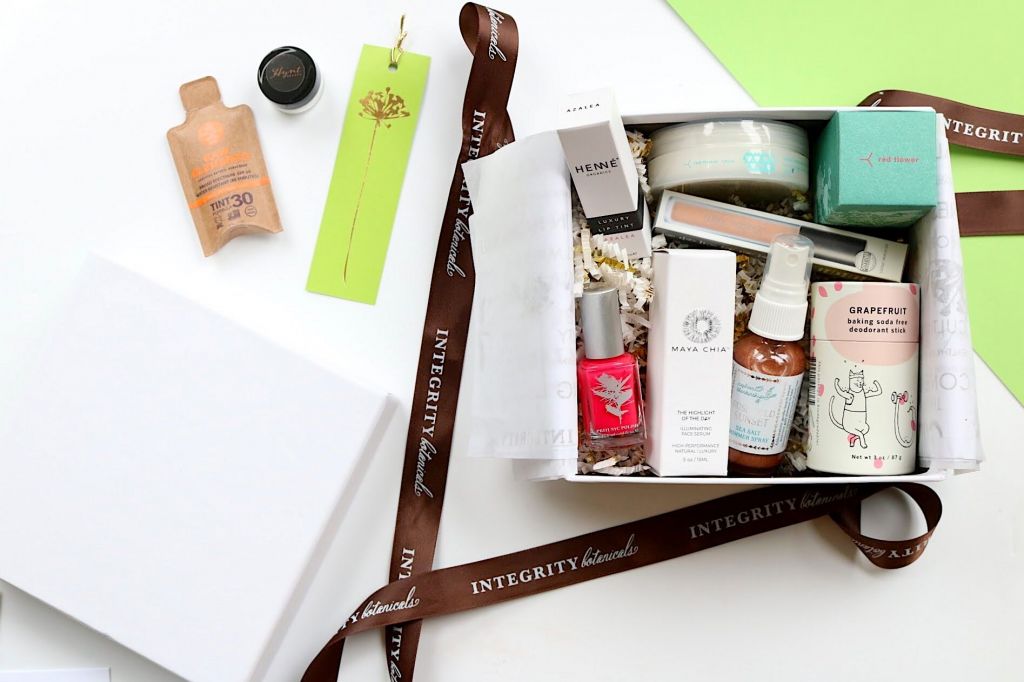
Is there anything else you all want to share about plans for the future?
Terri: People always ask, “Are you going to open up a brick and mortar?” We get asked that question a lot, and we really don’t [plan to]. We have considered it, we just don’t think it’s worth the investment. We’re seeing the trend with online shopping everywhere and brick and mortars closing. Even locally, in our county, small shops are closing. I see it as a huge risk for us and I don’t think it would be as profitable.
Marc: Our online business is continuously growing rapidly. We’ll keep our focus there. We think the brick and mortar store would be too much of a distraction for us, and also spread us too thin.
Terri: We’ve done all of this ourselves. We don’t have outside investors that are helping us. We boot strapped it the whole way. It’s probably taken us longer to get where we are today, but we weren’t looking for outside investment.
Marc: As far as the future we’re moving into a new space. We’re waiting for construction to be completed. We’re supposed to be moving in June. It’s a little bit larger, it’s not far from where we are right now. We’re looking for something larger, we’re running out of space with all of our product lines, our packaging materials and all that. Plus, Terri is going to be going on a maternity leave very soon. We’re going to need to have another person to pick up a bit of the slack. Of course, Terri is not replaceable.

